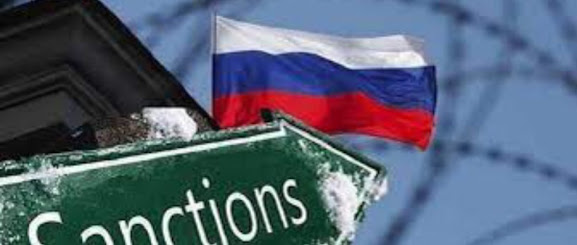In the face of congressional denial, a beacon of hope emerges as €260bn in Russian assets offer a financial lifeline to support Ukraine’s pressing defense needs.
In the wake of America’s House of Representatives denying further aid to Ukraine, a new focus has emerged on alternative sources of funding to support the embattled nation. The spotlight has turned to assets worth €260bn ($282bn) belonging to Russia, frozen since its full-scale invasion of Ukraine two years ago. Janet Yellen, America’s Treasury Secretary, joined a growing chorus on February 27th, advocating for the unlocking of these assets' value. However, a significant portion of these funds are tied up in Belgium, leading to divided opinions within the European Union on the wisdom and legality of deploying these funds for Ukraine's benefit.
There
is a compelling moral and practical case for utilizing this money to aid
Ukraine’s defense. The injustice Ukraine has suffered is clear, and its need
for financial support is urgent. At the same time, Western governments find
their finances stretched thin. Yet, seizing these assets outright could be a
critical mistake. Historically, sanctions imply that if an aggressor, like
Russia, changes its behavior, it can reclaim its funds. Reparations are
typically a post-conflict matter, not a tool used during ongoing hostilities.
Preemptively taking these funds might feed into the narrative, particularly
prevalent in the global south, that Western powers selectively adhere to
international law.
Legal
experts around the globe are racing against time to find effective ways to
utilize Russia’s frozen financial assets for reparations. A particularly
complex yet innovative approach being considered is the transfer of Ukraine's
claims for reparations to Western entities. This method would theoretically
allow for the Russian assets to be used directly to offset Ukraine's
reparations claims. Such a transfer, however, is mired in a web of legal and
political intricacies. The process is unprecedented and involves navigating
through international laws and regulations, raising questions about
jurisdiction, enforceability, and the potential diplomatic fallout from such a
move. Moreover, the political implications of this approach are significant, as
it requires a high level of international cooperation and could lead to
tensions between different nations with varying stances on the
Russian-Ukrainian conflict.
Amidst
these complexities, a more straightforward solution has emerged, centered
around the vast amount of Russian assets frozen in Europe. Specifically,
Euroclear, a Belgium-based financial services company, holds approximately €190
billion of these assets. A unique aspect of this situation is the accruing
investment returns and principal repayments on these assets, which are
gradually amassing a substantial cash balance, currently estimated to be around
€132 billion. This fund, originally destined for Russia, is growing due to the
suspended financial transactions, and there is a growing consensus that Russia
should forfeit its rights to these returns, especially considering that
Euroclear typically does not pay interest on such cash holdings. This stance
offers a simpler, more direct avenue for tapping into Russia's frozen assets
without the legal entanglements of transferring reparations claims.
The
situation at Euroclear has also led to an unexpected financial benefit for the
company. The handling of these frozen assets has resulted in significant
profits, catching the attention of the European Union. In a decisive move, the
EU has mandated that these profits be isolated and not distributed among
Euroclear's shareholders. This development culminated on February 28th, when
Ursula von der Leyen, the President of the European Commission, made a
groundbreaking proposal: to redirect these funds to Ukraine. If realized, this
strategy could provide a sustained and substantial financial aid stream to
Ukraine, evidenced by Euroclear's notable earning of €4.4 billion from these
assets in 2023. This initiative not only offers a pragmatic solution to the complex
problem of utilizing frozen assets for reparations but also symbolizes a strong
gesture of support for Ukraine from the European community.
The
EU can enhance this initiative. By launching a financial vehicle backed by the
income from Russia's assets and issuing bonds, a substantial upfront amount
could be raised and sent directly to Ukraine. Investing the €132bn cash balance
in German debt could yield about €3.2bn per year, enough to service almost
€114bn of joint EU debt. This mechanism would not only provide immediate aid
but also demonstrate Ukraine’s economic stamina in the conflict.
Should
Russia fail to reach a satisfactory peace agreement, the EU would not have to
use its own funds for debt servicing. If peace is achieved, the EU might bear
some financial responsibility, but this would likely be offset by the economic
benefits of ending the war. Most importantly, this approach meets Ukraine's
urgent need for financial support without undermining the principles it is
fighting for.
This
situation underscores the need for a balanced approach that respects legal and
ethical boundaries while addressing the critical needs of Ukraine. The strategy
of leveraging investment returns from Russia's frozen assets offers a viable
path forward. It adheres to international legal norms, provides essential
support to Ukraine, and upholds the integrity of the Western stance against
Russian aggression. Mobilizing these assets could play a pivotal role in
ensuring Ukraine’s resilience and eventual recovery.





No comments:
Post a Comment